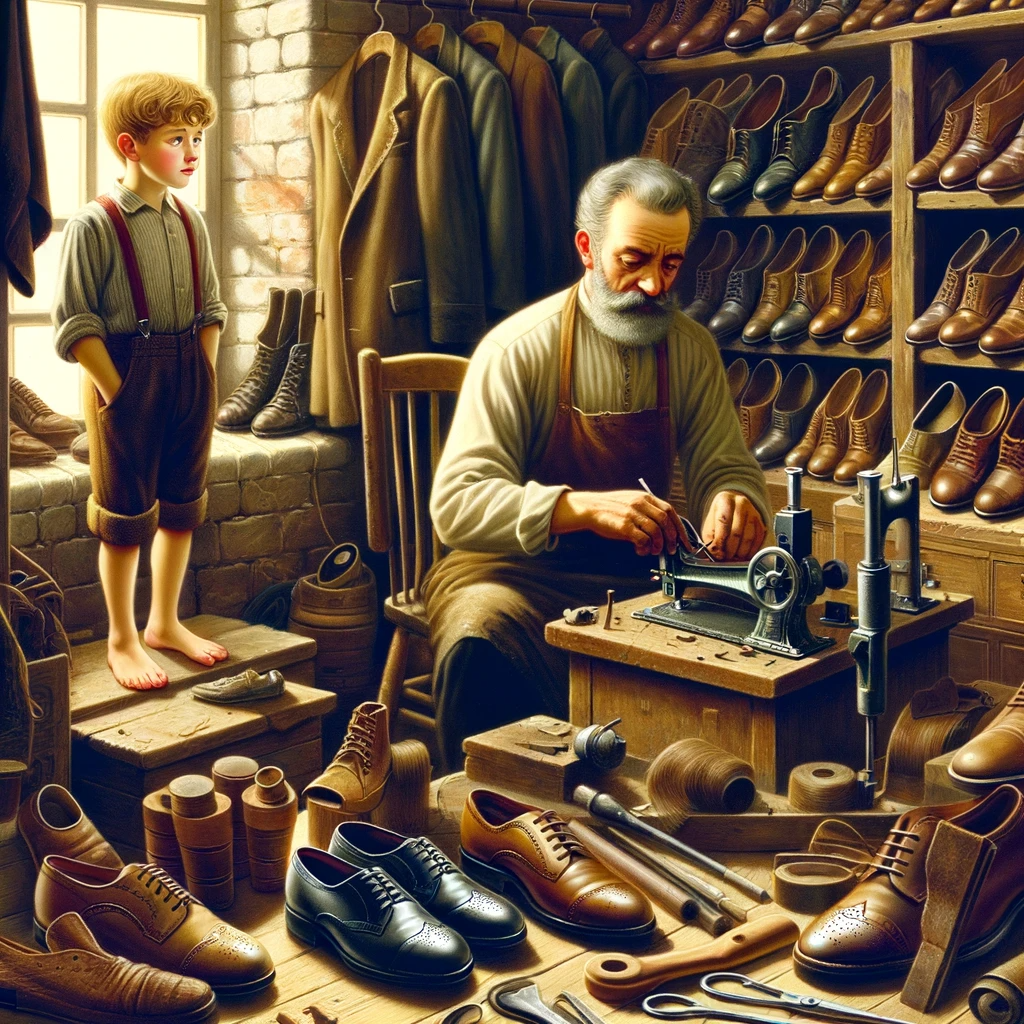It’s the time of the year for 2021 predictions. Most of them will be wrong. But is there a way to profit from them anyway?
I believe so. Think with me through a few of my own predictions, and I think we’ll uncover a method that can help you prosper from all predictions, whether they’re right or wrong.
Change your perspective on predictions
A friend likes to summarize human calamity in two stages:
- What could go wrong?How could we have known?
- And there, my friends, is how you profit from predictions.
Rather than thinking of them as things that might or might not come true, think of them as possible warnings from the future to make sure you’re prepared. In other words, if this prediction were to come true, what would happen to my business?
To explain a little further, I’ll go through that process with a few of my own 2021 predictions. I’m not claiming any of my predictions are worth anything. But I am proposing that my method of thinking through predictions has benefits.
Prediction #1: You’ll see a lot more server- and log-based analytics in the coming year.
The Great Cookie Wars are underway. Browsers are blocking them. Badly written legislation is limiting them. People who claim to have your privacy in mind are wagging their fingers at them. But many of the services we rely upon use them.
Until recently, cookies have been fairly reliable. But we’re at a turning point, and from now on you need to audit the data you get from cookie-based services against something a little more trusty.
Hence, server-based analytics.
When people access content on your page, they’re submitting a request to your server, and your server can (and almost certainly does) log those requests. It’s time to start devising server-based tools to compare actual data against reports.
Will this turn out to be true? Who knows? But the process of thinking it through will help you survive the cookie wars.
To do: Make a list of all the data you get that relies on cookies. For each data point, ask yourself how you can verify it from another source.
I have a lot of ideas along those lines, so give me a call if you’d like to speak about it further
Prediction #2: Amazon will start offering an in-box service to marketers. It will include stocked items, print on demand service, and even 3D print on demand capabilities.
What do we all have in common these days? We’re sitting around in our houses, working on our computers, struggling through meetings on computer screens, and viewing the Amazon delivery truck as the modern equivalent of the Wells Fargo Wagon.
What if that smiley Amazon box included — in addition to the latest gizmo you ordered — a targeted giveaway from a brand that wants your attention?
Amazon has an obscene amount of first-party data. If a brand owner wanted to get samples of their socks, magazine, pamphlet, DVD, soap, etc., in front of a carefully selected audience, who better than Amazon to do it?
Will Amazon do this? I don’t know (they should), but something like this will happen. Remember all the junk you used to get with your credit card bills? The same process might happen with parcel delivery.
Would this be an opportunity for you? A challenge? Better to think it through now.
To do: Put yourself in the seat of your market as they sit at home, bored, getting a monitor tan. Get your staff to think about ways to excite, distract or engage them.How can you get your brand in their hands?
Prediction #3: Live events will come back in 2021, and you and I will be having cocktails to the soothing sounds of the waves lapping against Miami Beach.
But it will be a different world. The event of the future will incorporate many of the new ideas people have discovered and refined in the quest for worthwhile virtual events.
In-person events are big business, and for some organizations they make up the lion’s share of revenue. When COVID ended in-person events, the events industry tried to transition to virtual events, and then discovered that sharing a cocktail over a computer just doesn’t quite do it.
A lot of good thought has gone into this transition, and people are coming up with new ideas all the time, but the turning point will happen when the concept of the event is removed from the equation. It’s already starting to happen.
The relevant question today is not “how do we save events when we can’t all converge on Vegas,” but “what were we trying to accomplish anyway?”
Events are becoming disaggregated. The question won’t be “how do I duplicate this live event feature on a computer?” but “how can I leverage the things that actually work on a computer (YouTube, Reddit, Twitter, Facebook) to meet some of the goals my events were supposed to address?” And, of course, what new things can I do that we could never dream of doing in a live event?
And then, on that fun day when we’re all listening to the waves roll in, how can Events 2.0 make the most of what’s best from the real and the virtual world?
To do: Back away from the idea of an event and think about goals. Disassociate these things in your mind, then ask what is the best way to reach that goal?
Prediction #4: We’ll increasingly treat one another as members of very different tribes. And that won’t be a bad thing.
We’re often told that we’re more divided than ever. People not only disagree on conclusions and perspectives, they operate from a completely different set of facts.
It reminds me of J.R.R. Tolkien’s musings on fairy stories.
Imagine a situation — say, in England in the second century — in which two completely different cultures lived side by side. In one moment you could be in Roman Britain, and in another you could be among the druids. Or, closer to home, John Adams might spend the morning in Boston and the afternoon among the Wampanoag. That’s what Tolkien meant by a fairy story. You turned a corner and found yourself in a different world, where the rules and expectations are disorienting.
Our contemporary political and cultural divisions are almost that severe. You can no longer assume a common set of facts and a common worldview with the people you meet. This could tear us to pieces, or … we could learn to cope — just like people in the past learned to cope with similar clashes.
To do: Whatever camp you’re in, reconsider your efforts from the perspective of the people on the other side. How can you respect them in their culture, and also learn to appeal to them from yours? (Without calling them Nazis or Commies.)
The Method
That’s all I have for predictions. I can’t say if mine will come true, and I don’t think it matters. What matters is what you can learn from them, whether they’re right or not, and whether you’re prepared if they come true.
A question for 2021 (not a prediction)
There’s a lot of talk about “local” becoming the new thing. If so, will that be small businesses owned by your neighbor, or will it be big companies changing their strategies. For example, I’ve heard that Barnes and Noble will be giving local managers more control over what to stock.
Big company, local sensibilities. Smart.
COVID is killing small businesses at an alarming rate. It’s hard to imagine the very same businesses will come back and operate as they did before the crisis. Too many people have had to move on with their lives.
When COVID restrictions are no longer necessary, will new small businesses fill that niche, or will big business step in and take over?
I fear the latter, but I’m not willing to predict it.
Pick up the phone
I hope these ideas help you think through your strategy for 2021. And if you have any needs related to publishing or marketing technology or operations, I can probably help. At the very least I can help you think through the problem. I’ve been focusing my attention recently on Customer Data Platforms, and if you’re considering one, or have one and don’t know what to do with it, or even if you don’t know what a CDP is, give me a call. I’m happy to chat. You can reach me at 240-687-1230.
Finally, if you know someone who could benefit from this article, please share it.





I really liked what you said here: “To do: Back away from the idea of an event and think about goals. Disassociate these things in your mind, then ask what is the best way to reach that goal?”
In the end, association and meeting professionals need to ask themselves were their event surveys really getting the feedback they wanted to see? Were their live, in-person numbers really what they thought they were, was engagement really high? Were your sponsors consistently happy back when we were in person?
If we’re honest, for most, that was not the case. We can all wish for the boss to ship us to a conference in Vegas, a night on the strip, or a day away from the conference on the beach, but after all this, will your boss or your CEO want to spend her hard won business on “upskilling” you with a night on the town? My guess is smart businesses will ratchet back your attendance and those producing events will need to think longer and harder about how to make the virtual space revenue-generating and how their live, in-person shows can be smaller and more impactful providing the connectivity that a lost happy hour on the deck of a grand hotel provides.
How will we get there? Utilizing pro’s like me and my many many many outside-the-box thinkers to reinvigorate, reframe, and refresh what was becoming a lousy to mediocre experience for many.